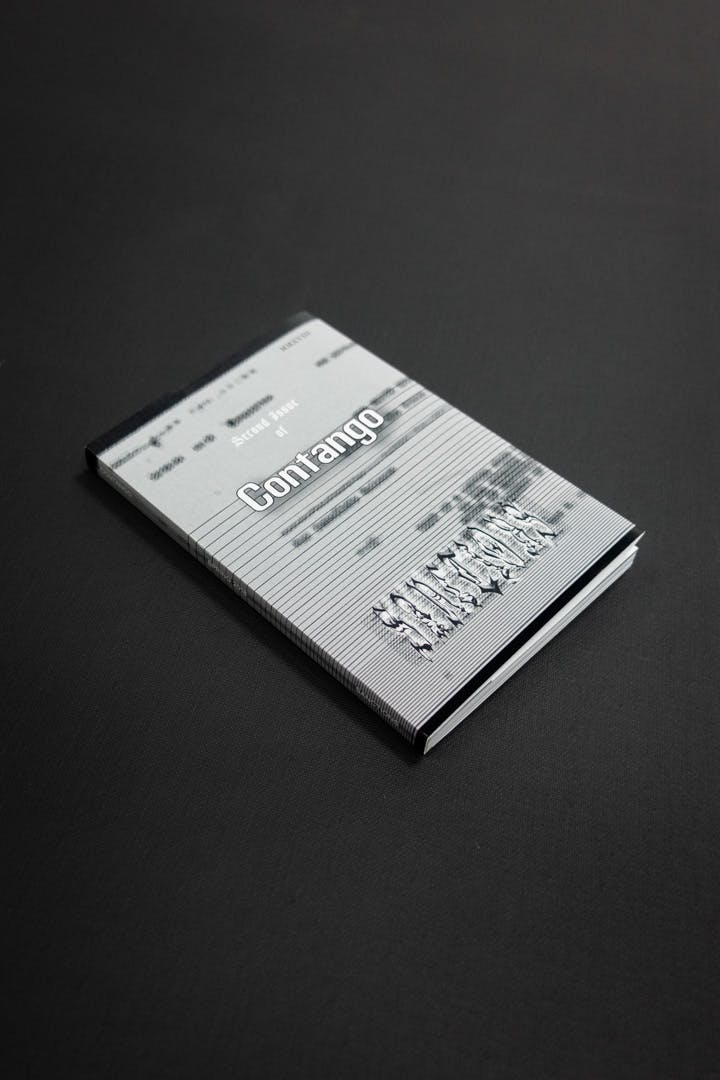SANCTIONS
How does an individual or group of individuals enforce their will upon another without the use of violence? In government these procedures are referred to as sanctions, often foregoing or preventing military intervention. These measures rarely result in the desired change, meaning their implementation is far less effective than their proposition.
When two parties negotiate power, a threat can play out in several ways. If a dominant force threatens the weak, it exercises its position as enforcer in an attempt to maintain the dynamics of the relationship. But if the weak calls the threat to action, it can potentially subvert those dynamics. In most cases, when two nations play this scenario out, less developed countries statistically benefit from imposed sanctions as their dependence on the outside world is reduced, thus creating a more stable economy and diminishing opportunities for outside economic coercion.
This second issue of Contango presents contributions from writers and artists whose work undermines dominant power structures through research, aestheticization, activism, and self reflection. It explores variations on the negotiation of power, the strategy behind legislation and the art of the bluff.
Writers
What Sanctions Accomplish Even When They Fail
Brian R. Early is the Director of the Center for Policy Research and an Associate Professor of Political Science at the University at Albany, SUNY and the founding Director of the Project on International Security, Commerce, and Economic Statecraft (PISCES).
Savanah Courtney is earning degrees in Public Policy and Cybersecurity, Homeland Security, and Emergency Preparedness at the University at Albany, SUNY.
On Big Little Lies and Networks of Trauma
Maggie Sivit is a Ph.D. candidate in cinema and media studies at the University of Chicago. Her areas of interest include network aesthetics, semiotics, and new media. She is currently working on a project related to video evidence in U.S. law courts.
The Core Hypocrisies of Nuclear Deterrence
Nick Russell began studying nuclear weapons in 2009 while on assignment for the Fermilab/SLAC publication Symmetry to document the current state of Department of Energy National Laboratories. Nick maintains a small photography and video production company called Light & Noise, Inc. with his business partner Charles Witherspoon. Together, they are currently developing long-term photographic projects on Radio Astronomy \ and Nuclear History.
ARTISTS
Parker Bright is an interdisciplinary artist currently based in New York City. Since receiving their BFA from The School of the Art Institute of Chicago in 2015, Bright's work has been shown nationally at the Bruce High Quality Foundation (NYC), Julius Caesar (CHI), and internationally at ArtSpace Mexico (DF), Ginny Projects (LDN). Outside of their studio practice, Bright has been involved in arts activism, in 2017 they protested at the Whitney Biennial (in conversation with Hannah Black), which attempted to resurface conversations about institutionalized insensitivity towards Black bodies in museums, appropriation of historicized African American trauma, and the cultural and monetary gain of White artists using Blackness as raw material.
Claire Lachow is an artist, writer, and founding member of the collective MATERIAL GIRLS. Lachow's work has been shown internationally; selected exhibitions include The Museum of Human Achievement (2018), SPRING/BREAK Art Show (2018), Local Host Gallery (2017), M2 Gallery (2015), Schema Projects (2014), and MoCA Cleveland (2010). Her work and writing have been published in Foundations Magazine and the Atlas Review. Lachow received a B.A. from Oberlin College, and lives and works in Brooklyn, NY.
Arnon Rabin (b.1984) lives and works in Tel-Aviv. He holds an MFA from the School of the Art Institute of Chicago and a BFA from Bezalel Academy of Art and Design in Jerusalem. He is the recipient of numerous grants and awards including SAIC New-Artist-Society Merit Scholarship, America's Israel Cultural Foundation Sharett Scholarship, Anna Louise Raymond Fellowship, Bezalel Academy Excellence Award for Graduate Exhibition. His work has been presented in solo shows at the Petach Tikva Museum of Art, Randy Alexander Gallery in Chicago, Ha's Kibbutz Gallery in Tel Aviv and in various exhibitions at The Union League Club of Chicago, The Museum of Photography in Tel-Hai, Sotheby's Gallery London, Zemack Gallery, Tel-Aviv among others.
Angela Ziqi Zhang is a painter living and working in New York. She graduated from the University of Chicago in 2016 with a BA with Honors in Visual Arts and BA in Economics. She is a finance assistant at a Chelsea Gallery, paints, and organizes shows for early-career artists in her free time.
INFORMATION
Summer 2018—Issue 2
6.75x4.5 inches
126 pages
4-color with slipcover
